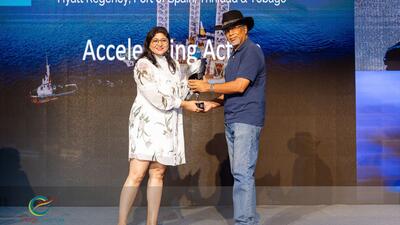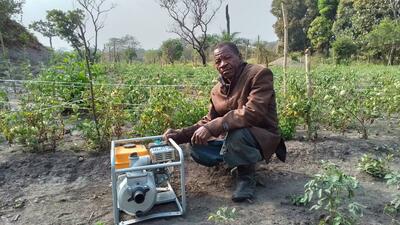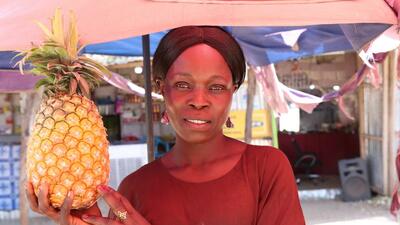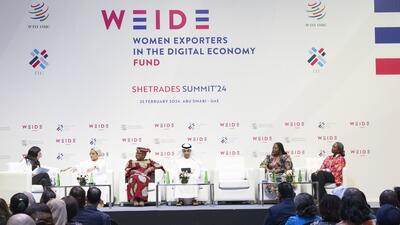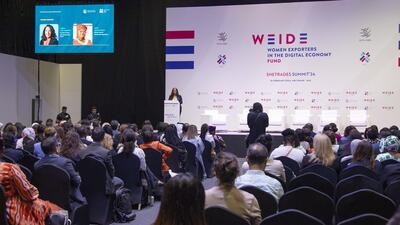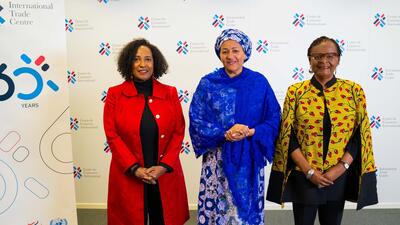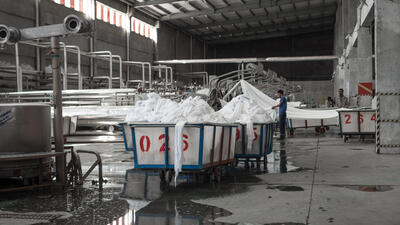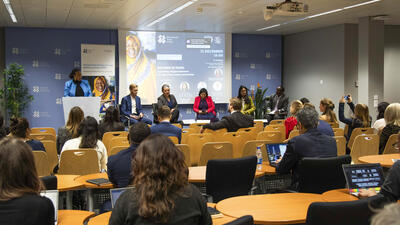
‘Going Green’ Helps us to Prepare for Future Shocks
by Pamela Coke-Hamilton, Executive Director, International Trade Centre
As firms rebuild from the pandemic’s devastation, it is necessary now more than ever, to reinforce their ability to cope with future shocks – especially the growing climate crisis.
By ‘going green’ companies can improve their resilience and be more competitive, according to research we have carried out at the International Trade Centre (ITC). They can better manage risks brought by climate change while taking advantage of green economic opportunities, at home and through cross-border trade.
Making companies more resilient to shocks reflects what we have learned from the experience of firms during the pandemic. Our data shows that resilient firms were five times less likely to lay off workers and more likely to have stable sales.
One of ITC’s strategic priorities or ‘moonshots’ aims to improve the climate competitiveness of micro, small and medium sized enterprises (MSMEs) in developing countries.
By doing so, we will equip MSMEs to better respond to risks and ensure that trade contributes to creating inclusive, sustainable and prosperous economies.
But companies, especially MSMEs, need partners in this transition. Key among these are trade promotion organizations.
Through the daily work they do with businesses, trade promotion organizations can empower a green recovery. A 20-point Green Recovery Plan set out in our recent flagship report, the 2021 SME Competitiveness Outlook, helps to point the way.
We call for trade promotion bodies to embrace sustainability. They can develop their expertise to help SMEs to transition to a low-carbon economy and work in partnership with government and businesses to encourage green growth initiatives. They should also advocate on behalf of small firms in green trade. They can build local support ecosystems; facilitate SME finance by being a trusted intermediary; and use training and innovation to strengthen the capacity of SMEs to go green.
Such efforts are crucial for SMEs, which account for more than 50% of jobs and greenhouse gas emissions. Small firms in developing countries are more worried about climate change, but less likely to take action to prepare for it, according to our research.
For example, 68% of small firms in sub-Saharan Africa view environmental risks as significant, compared with 54% in developing countries, our surveys show. Nonetheless, just 38% of small firms act to reduce environmental risks, compared with 60% of large firms.
When they do act, companies reduce waste, invest in renewable energy, make green products and services, gain green certification and go digital. And these moves often pay off.
Nearly 60% of African companies that greened their enterprises said this led to new, higher-quality products, access to new markets or lower input costs, according to ITC surveys. They were also in a better position to tap the growing pot of green finance.
Such experiences will be on the agenda at the 13th World Trade Promotion Organizations Conference in Accra, Ghana this month (17-18 May) under the theme, Bold Solutions for Resilience and Recovery. Hosted by the Ghana Export Promotion Authority and ITC, the discussions will reflect on how sustainability is both a survival imperative and a business opportunity.
I am pleased to be leading one of the plenary sessions on global business trends, including the green transition with the CEO of Renetech, a major renewable energy technologies firm.
We’ll also explore how to scale up initiatives that national trade bodies are already carrying out around sustainable solutions for adaptation and growth. For example, Export Barbados will show how it is shifting the country’s economy towards life science-based exports. It will also discuss its sustainability certification efforts linked to Caricom trade agreements, which raise revenue and credibility.
Procomer, the Export Promotion Organization of Costa Rica, will highlight its integration into its country’s sustainable development strategy. Costa Rica received the United Nations Champions of the Earth Award for policy leadership in 2019, which singled out the country’s drive to combat climate change.
RVO, the Netherlands Enterprise Agency, will discuss how the country’s trade promotion, investment and development cooperation efforts increasingly emphasize sustainability – and how it is important to be coherent in its choices.
Matrade, the Malaysian trade promotion body, is helping to reposition the country as a source for sustainable products and services, with a new marketing support programme for green exporters.
We’ll also be providing awards to initiatives that are sustainable, digital and partnership-based during the event.
By working together to promote the green transition and sustainable trade, trade promotion bodies, businesses and governments can ensure that companies are resilient enough to cope with future shocks.




